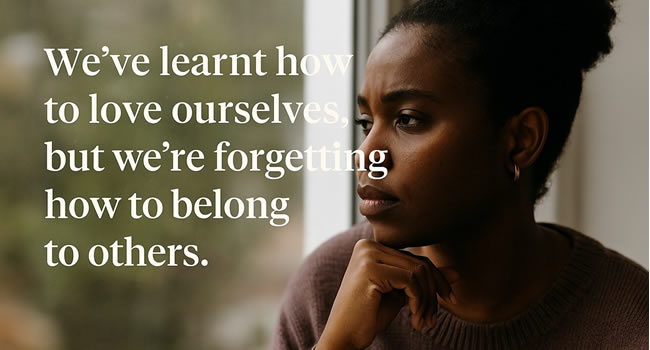When home becomes a place you love from afar and grieve from even farther.
There are some calls that make your heart pause.
The 2am WhatsApp ring.
The voice note that begins with, “Don’t panic, but…”
The cousin’s name that flashes on your screen after months of silence.
And just like that, you remember you’re not nearby.
You’re not a bus ride away.
You are a flight away.

It’s a quiet grief, this distance. Not loud enough to interrupt your meeting or cancel the school run. But it sits in your chest. You’re in Canada, or Kent, or Atlanta, and yet your mind is pacing the hallway of your father’s house in Owerri. Your heart is standing over your mother’s bed in Ikorodu, watching her sleep. Your body is here, but your spirit is split.
You tell yourself you migrated for better opportunities. And you did. For safety. Stability. Sense. But no matter how many years pass, there are moments unexpected, undramatic moments when you realise: you can no longer just show up.
You can’t pop by to check the BP machine.
You can’t peep into the pot of ogbono to make sure she’s eaten.
You can’t help your dad refill the gas.
You can’t sit quietly while they tell the same story you’ve heard ten times before because even that presence is a kind of care.
Instead, you make the call. You send money. You text someone who lives nearby. You arrange home help. You ask your siblings to “just check in when you can.” You do your best. You carry the love across borders. You pray the doctor is thorough. You pray the driver is careful. You pray the phone rings when it should.
This is the diasporan burden we don’t speak of enough.
It’s not just about homesickness. It’s the ache of knowing that some of the most important moments big and small are happening without you. You’re missing things you didn’t even know you’d miss.
The weekly market run.
The banter during NEPA outages.
The gradual softening of your once-strict father’s voice.
The way your mother now asks twice if you’re eating enough.
You try to hold it together.
You send voice notes.
You play the prayer recordings she sent you last Easter.
You smile at your child with tears in your eyes because you suddenly realise they don’t fully know your people and your people don’t fully know them.
But here’s the thing: you’re not alone.
This is the story of many of us. Nigerians in diaspora, torn between two worlds. Thriving in places we once dreamed of but grieving the lives we’ve had to stretch behind. Trying to build something new, while still tied to the roots of the old.
We are loving our families across oceans. We are parenting across time zones. We are missing funerals, births, Christmases, and compound gist. Not because we don’t care, but because we’ve chosen to build something different. And that choice, while valid, isn’t painless.
So if you’re feeling it that quiet guilt, that whisper of longing know this:
Your love is not small because it is distant.
Your presence still matters, even when it’s digital.
And your grief is allowed to exist, even when nothing dramatic has happened.
Because sometimes, the ache isn’t about what was lost.
It’s about what you never got the chance to hold.
📣 Have you ever felt this ache the love you can’t carry by hand, only by heart?
Share your story using #EgogoFarButPresent and let’s hold this part of our journey together.





